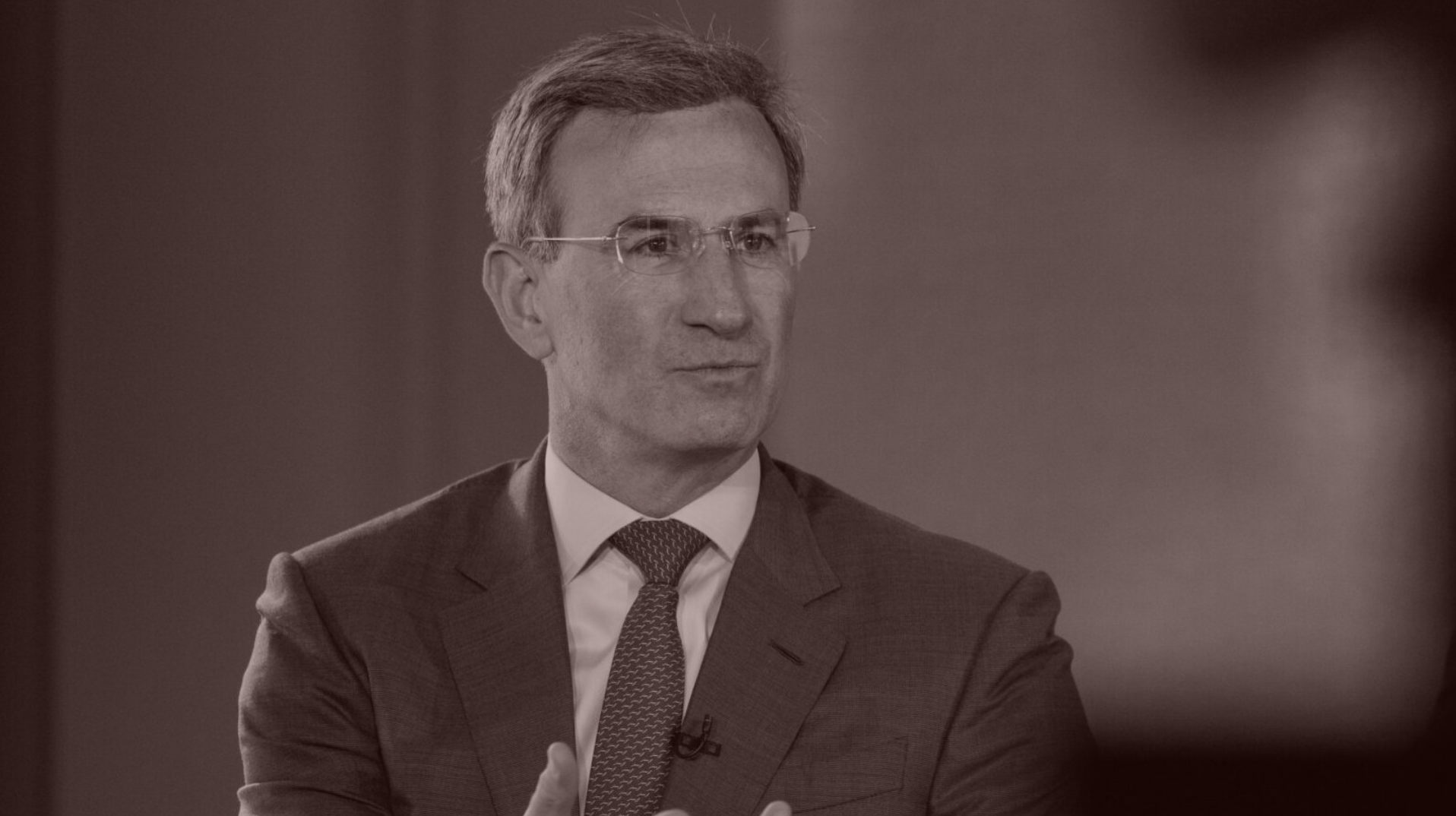 |

|
|
Welcome back to Dry Powder, and happy official start of fall. I’m Bill Cohan, still in Nantucket, where the season isn’t technically over until The Wauwinet closes next month, although we’ve been living through a monsoon for the past four days.
Tonight, reflections on the latest outcry over working conditions on Wall Street, following the tragic deaths of two young bankers. This is an issue I’ve been writing about for years. Supposedly, Bank of America and JPMorgan Chase are taking steps to make workloads less hellish. But let’s be real: Wall Street is just awful at reforming itself. Just ask my friend Peter Orszag, the still-newish C.E.O. of Lazard—the investment bank where I, too, once worked long hours—where it appears little is changing.
But first…
- A new low for Trump: The collective relief that swept over Wall Street on Thursday, after the Federal Reserve cut short-term interest rate targets by 50 basis points, benefitted most stocks, with the notable exception of at least one: Trump Media & Technology Group, which keeps hitting new low after new low. I hate to say I told you so, although it was as obvious as the nose on your face. The stock, which trades under the ticker DJT, now has a $13-a-share handle, down 26 percent this week alone. The stock traded as high as nearly $80 a share earlier this year, and is down 68 percent in the past six months.
The proximate cause of the latest downturn is the end of the lock-up period for insiders to sell their DJT stock, including Donald Trump, who owns roughly 57 percent of the company, a stake now worth around $1.5 billion. I doubt the stock’s collapse stems from a genuine conviction that Trump will dump his stock, which would be difficult, if not impossible, to achieve without tanking what’s left of its remaining value. (Trump may not understand how tariffs work, but I presume he understands this. He is a Wharton grad, after all.) More likely, retail investors are slowly wising up to the fundamentals of the company, which has barely any revenue and double-digit losses in the millions of dollars and shouldn’t have become a public company in the first place.
From the moment it began trading, back in March, Trump Media was little more than a meme stock—a reflection of the fervor surrounding Trump, himself. Is the stock tanking an indication of Trump’s waning political prospects? That’s above my pay grade, but it’s worth noting that since July 21, the day Joe Biden announced he was abandoning his effort to win a second term, the DJT stock is down 61 percent. A harbinger of things to come in November?
- Saylor’s Bitcoin bounce-back: Meanwhile, I thought I’d check back in on Bitcoin maximalist Michael Saylor, the founder and now board chairman of MicroStrategy, a B2B software company better known for investing huge sums in the cryptocurrency as a reserve asset. It was an extraordinarily risky bet, but one to which Saylor has been utterly devoted. At one point, back in May 2022, the company nearly faced a margin call on its billions of dollars in Bitcoin as the price plummeted.
Since then, however, Saylor’s gamble has paid off—both for him and MicroStrategy’s shareholders. On Friday, Saylor announced that MicroStrategy just bought another 7,420 Bitcoin, for $458.2 million, at an average price of around $61,750 per Bitcoin. The company now owns 252,220 Bitcoins, acquired for close to $10 billion, at an average price of $39,266 per Bitcoin. MicroStrategy’s Bitcoin is now worth around $16 billion, giving the company a profit of $6.1 billion.
This is quite remarkable, of course, if very high beta. And the stock market seems to have responded to Saylor’s good fortune in a powerful way. MicroStrategy’s stock is now worth close to $30 billion, up 341 percent in the past year. The software division of MicroStrategy is likely not responsible for this level of appreciation; that means the market is valuing Saylor’s Bitcoin profits at a multiple of 5x—i.e., many people expect those profits to grow, and Bitcoin’s price, currently around $63,000 per coin, to move higher (although it’s still below its all-time high of nearly $74,000).
Saylor certainly still believes. He said on CNBC recently that he expects Bitcoin will trade for $13 million per coin within 21 years. (Not a typo.) I remain highly skeptical, as much as I admire and enjoy listening to Saylor philosophize.
- Have two minutes?: A reminder to fill out this survey for the Puck Private Conversation, powered by Orchestra, an exciting new product we’re spinning up. We want your unvarnished opinion about everything. Do you think the S&P 500 will be higher six months from now? Are you optimistic about the future of your industry? (Be honest…) It’s yet another step toward Puck’s goal of bringing you into the conversations that matter in your world.
|
 |
| Orszag’s Faustian Bargain |
| Young Wall Street associates aren’t operating in a theater of war, so why can’t the industry actually do a little more to prevent their existences from becoming a total living hell—without the pat talking points? |
|
|
|
| The recurring issue of the mistreatment of junior bankers is once again reverberating across Wall Street in the wake of the sudden deaths of two young Bank of America employees: Leo Lukenas III, a 35-year-old investment banking associate, who died in May of coronary thrombosis after complaining of 100-hour-plus work weeks; and Adnan Deumic, a 25-year-old junior trader in London, whose heart stopped while playing soccer a few weeks later. Lukenas, an Army veteran, left behind a wife and two children.
Neither death has been definitively tied to the long hours and grueling working conditions that are still standard fare on Wall Street. Alas, such tragedies are not a new phenomenon, despite the lip service given time and time again by senior Wall Street bankers to doing something, anything, about relieving the stress placed on junior bankers. I have been acutely aware of this problem for nearly 40 years, ever since my own days as a junior banker, before slowly but surely moving up the ranks. Some nine years ago, I wrote a piece for The New York Times about the tragic suicide of Thomas Hughes, a 29-year investment banker at Moelis & Company.
For whatever reason—it’s after Labor Day, who knows?—Wall Street is once again taking steps to try to ameliorate the harsh working conditions for junior bankers. Bank of America, for one, is apparently implementing a new timekeeping tool that will require junior bankers to share, in more detail, how they are spending their time, which senior bankers they are working with, and how much “capacity” they have for more work on a scale of 1 to 4. In other words, BofA is asking its junior bankers to do even more work to keep track of how much work they are doing. Human resources—not really your friend on Wall Street—will supposedly be alerted if a junior banker works more than 80 hours a week. The bank also requires that junior bankers take one weekend day off. In other words: Everything is cool at BofA until junior bankers surpass 13.3 hours of work, six days a week.
Meanwhile, over at JPMorgan Chase, veteran executive Ryland McClendon has been appointed to a newly created role where she will be charged with overseeing the “well-being and success” of the firm’s junior bankers and analysts. Well, that’s certainly nice. Can’t wait to hear more details about how “well-being” will be taken into account in the middle of a big financing or M&A deal. Like BofA, JPMorgan Chase has also mandated an 80-hour-per-week cap on work for junior bankers, with exceptions for “a live deal,” natch. There is also the “pencils down” rule for juniors between 6 p.m. Friday and noon on Saturday—“with exceptions,” of course. In the U.S., junior bankers will also get at least one protected weekend day off… every three months.
Laugh at these protections, such as they are, but there are even fewer protections for junior bankers at other banks. There are essentially none at Morgan Stanley, for instance. Goldman Sachs has no cap on the number of hours that can be worked in any one week, although there is supposedly no work for juniors allowed between 9 p.m. Friday and 9 a.m. Sunday—with exceptions, of course.
|
|
A MESSAGE FROM OUR SPONSOR
|
 |
The electric SUV that drives like a sports car. Polestar 3. Up to 315 miles of range (EPA). 0-60 in as little as 4.8 seconds. Up to 517 hp. That’s Polestar 3. This electric performance SUV delivers the power and torque of a sports car, and the luxury of a spacious interior. Be among the first to experience Polestar 3.
Schedule your test drive today |
|
|
|
|
| Sadly, this is a problem without a good solution. You can mandate limitations on how many hours junior bankers work, but the fact of the matter is that in a client-driven business—and investment banking is the ultimate client-driven business, especially these days, after the Federal Reserve and Congress strangled the prop trading businesses on Wall Street—senior bankers think nothing of having junior bankers do all kinds of work in the interest of “client service.” And when there is a live deal underway, well, then all bets are off, whether there are H.R. mandates or not.
And, of course, everyone knows the rules of the game going in. In Wall Street’s Faustian bargain, young bankers trade their time, their sleep, and their health to earn more money than they could doing almost any other job—while taking no personal financial risk. They also get the chance to audition for the ultimate brass ring firms—Blackstone, KKR, Apollo—which start poaching talented junior bankers almost immediately. Meanwhile, those not fortunate enough to go to one of the big “alternative asset management” firms can usually remain at the Wall Street banks and slowly but surely move up the ranks to more senior positions and higher and higher pay, again without taking any personal financial risk. There are reasons it’s harder to get a job at Goldman Sachs than to get into Harvard.
Nobody has articulated a better defense of these tradeoffs than my friend Peter Orszag, the still-newish C.E.O. of Lazard, my old firm, who appear last week on bestselling author and private equity billionaire David Rubenstein’s Bloomberg TV show. Only a short segment of their conversation has been released so far, but it focuses on the plight of junior bankers—and it’s a doozy.
In response to Rubenstein’s question about why junior bankers can’t just work a normal 9-to-5, or have a better work-life balance, Orszag referenced a Teddy Roosevelt aphorism: “The greatest gift in life is the opportunity to do work worth doing.” (That’s close to the actual quote. Good memory, Peter.) He then went on to say that investment banking is one of those jobs where “you can’t get around the effort part of it.” That’s also true enough, and people are well-compensated for that effort—at Lazard, in particular.
Orszag pledged, however, that Lazard owes the people putting in that effort three things. First, in exchange for working your ass off, Lazard owes young bankers the “license to run as far and as fast as you can”—in other words, giving more responsibility to those who can handle the pressure. Fair enough, Peter. “One of the exciting things, for example, about being in government at a relatively young age is you have this sense that, ‘Oh my goodness, I’m this age, and I’m doing that,’” he said. “And to create that same sense of excitement for people entering financial services, I think is characteristic, and it’s very important.”
Second, Orszag said that “even if you’re working hard, you need to have some degree of agency and the ability to, if something else is important in your life, to take time off to go do that.” He said that was why, at Lazard in New York, the requirement is that you spend three days in the office, and can work remotely the other two. That policy is certainly an outlier on Wall Street these days. Many other firms have abandoned work-from-home options entirely. Orszag said the firm’s remote work policy “eases those tradeoffs for many people.” I wonder, though, how viable the work-from-home option remains for the junior bankers at Lazard—especially while in “live deal” mode—and whether those who take advantage don’t find themselves at a disadvantage come bonus season. (Feel free to reach out and share your thoughts, if you have the cojones to do so.)
The third and final part of the Orszag “compact” is to give junior bankers “the feeling that you’re part of something. You know you’re working on important things. It’s not just ‘make work.’” (This made me snort—way too much of the work on Wall Street consists of “make-work” projects.) Concluded Orszag, “I think if you put all those elements together, there are many, many people who would rather work whatever number of hours per week on interesting, important things, rather than fewer hours on things that are not that interesting. And that’s what we’re looking for; that’s the tradeoff.”
|
|
|
|
|
| I looked around the usual spots online to see if there had been any reaction to Orszag’s comments and couldn’t find anything directly related to them, although there is plenty of feedback about Lazard’s culture more generally on the Wall Street Oasis forum. Typical comments included, “Very little communication on any time off or protected weekends. Expect to work every weekend,” while another junior banker wrote that there is lots of “busy work” at Lazard and plenty of weekend work.
One braver soul, Tracy Farr, a managing director at Lazard who has been at the firm for 11 years, took to LinkedIn to laud the firm’s C.E.O. Farr wrote that he has worked long hours at Lazard since he started there as a junior banker. But he praised the “hybrid” work model as a “game changer” that gives him the opportunity to continue to work hard on behalf of his clients while also getting the chance to spend time with his young family.
He also echoed Orszag’s comment about being part of something “important” while working those long hours. “I truly care about and get attached to my clients,” Farr wrote. “We often operate in a season of their story that is the most critical decision they’re making as a business or owner. It’s incredibly rewarding and satisfying.” He concluded: “I can’t stress enough the truth Peter starts with: ‘You can’t get around the effort.’ Most things worthwhile are hard. And hard things take time and effort. Don’t avoid hard things—embrace the challenge and enjoy the journey.”
I’m sure with this attitude, and more than a touch of sycophancy, Farr will continue to do well at Lazard. But I’m not sure we’ve yet arrived at the answer about how to ease the lifestyle pain that junior bankers on Wall Street suffer at the hands of their more senior taskmasters.
|
|
|
|
| FOUR STORIES WE’RE TALKING ABOUT |
 |
|
 |
|
 |
| Yael Drama School |
| Speaking with the Reformation founder about her return to fashion. |
| LAUREN SHERMAN |
|
 |
|
|
|
|
|
 |
|
|
|
Need help? Review our FAQs
page or contact
us for assistance. For brand partnerships, email ads@puck.news.
|
|
You received this email because you signed up to receive emails from Puck, or as part of your Puck account associated with . To stop receiving this newsletter and/or manage all your email preferences, click here.
|
|
Puck is published by Heat Media LLC. 227 W 17th St New York, NY 10011.
|
|
|
|













